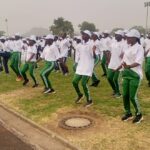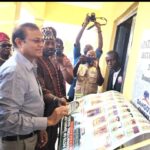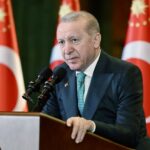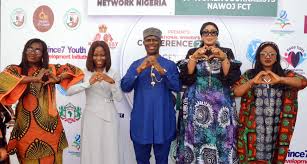By Diana Omueza, News Agency of Nigeria (NAN)
As the japa wave continues to draw young professionals abroad, Nigeria risks losing some of its finest storytellers and journalists who give voice to the nation’s struggles, triumphs and dreams.
This trend drains the media of talent, institutional knowledge, and the very individuals capable of shaping Nigeria’s narratives both locally and globally.
Japa, a term originating from Nigeria and now absorbed by the Oxford Dictionary, refers to the mass exodus of young Nigerian professionals to foreign countries in search of greener pastures; it leads to dearth of expertise in many fields.
Veteran journalists stress that retaining talent requires strategic support, not just passion.
They say competitive salaries, safe working environments, and structured career opportunities are essential to keep reporters motivated and productive.
They also emphasise the importance of local fellowships, mentorship programmess, and digital tools to equip journalists with global-standard skills while allowing them to report authentically from home.
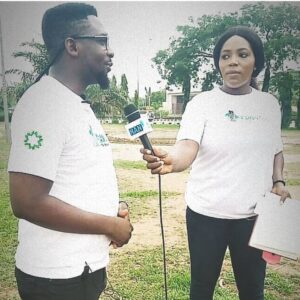
According to reports from the International Organisation for Migration (IOM) and the World Bank, scarcity of good jobs, low wages, and insecurity are major push factors driving youth migration in Nigeria.
These systemic gaps highlight the urgent need for the government and stakeholders to make journalists decisions to remain in Nigerian rewarding and sustainable.
In response to the japa syndrome and brain drain, a quiet revolution is emerging among young media professionals seeking opportunities without leaving Nigeria.
Fellowships, once overlooked, now serve as springboards for journalists craving global exposure while remaining rooted in their communities.
For many, fellowships provide structured training, mentorship, and networks that rival international programmes.
They equip fellows with skills, grant access to story funding, and open doors to regional and international collaborations that were once unreachable.
The Wole Soyinka Centre for Investigative Journalism (WSCIJ) Female Reporters Leadership Programme (FRLP), for instance, recently inducted 12 mid-career journalists into its 2025 cohort for six months of investigative and leadership training.
Among them, Christiana Alabi-Akande of DevReporting emerged the overall winner for her two-part story on sexual abuse of minors in Lagos. She received national recognition and grant support.
“I used to think you had to leave the country to build a career, but now I know growth can happen right here if you find the right opportunities,” Alabi-Akande said.
Similarly, the Media Foundation for West Africa (MFWA) Digital Public Infrastructure Journalism Fellowship supported 15 journalists with stipends, story grants, digital safety tools, and hybrid mentorship.
Across Nigeria, fellowships now cover traditional beats such as politics and health, and emerging areas like climate, technology, governance, and youth employment, providing alternatives to migration while nurturing local talent.
While international migration promises higher pay and better infrastructure, the reality often falls short of migrants’ expectations.
A Nigerian journalist, now in the UK, recounted working over the counter in a superstore, a situation he described as far from the professional growth he envisioned.
Studies show that only 12 per cent of Nigerian migration stories reflect the realities and risks of moving abroad, while 78 per cent emphasise perceived benefits.
Many migrating journalists often face employment mismatch, accreditation barriers, and cultural adaptation challenges.
Internationally, Nigerian journalists have excelled through programmes like the Chevening Scholarship, Reuters Journalism Fellowship, and the Mandela Washington Fellowship.
Locally, initiatives such as the PRNigeria Young Communicators Fellowship and WSCIJ Report Women Fellowship demonstrate that impact can be achieved without leaving the country.
Abdulrahman Yusuf, a 27-year-old PRNigeria fellow in Ilorin, shared how he carved a niche for himself through the fellowship.
“Before the fellowship, I struggled to find my voice, but after it I produced two data-driven stories that were picked up nationally.
“It gave me visibility and confidence,” he said.
Dr Ifeoma Onyebuchi, a media development researcher, said that fellowships provided structured career acceleration, exposure, and collaboration that strengthened Nigeria’s media ecosystem.
She said that fellowships were smarter alternatives for journalists to enhance their skills, gain exposure, and collaboration that directly feed back into Nigeria’s media ecosystem.
In spite of the benefits of fellowships, many aspiring journalists, especially those in their early-career face challenges applying.
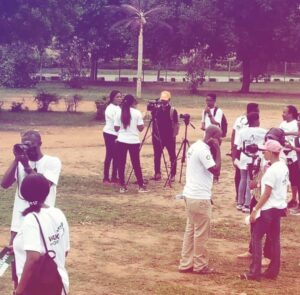
Ms Fauzia Hassan of GlobalTV in Abuja said applying for fellowship without fellowship experience is frustrating and discouraging.
“You need experience to get accepted, but you need opportunities like the fellowships to get the experience to apply and the selection process needs to balance fairness and merit with accessibility,” she said.
Nonetheless, another stakeholder, Ms Grace Anthony, described fellowship applications as confusing and exclusionary, particularly for freelance or community reporters without backings.
According to her, the application formats are repetitive, confusing and ambiguous and freelancers and community reporters mostly do not have access to reference letters.
Encouragingly, programmes are adapting to accommodate aspiring journalists.
The WSCIJ’s FRLP now includes mid-career journalists with at least four years of post-NYSC experience.
The PRNigeria Young Communicators Fellowship provides hands-on training, mentorship, and exposure to real-world newsroom dynamics.
Veteran journalists, Moji Makanjuola, through her organisation International Society for Media in Public Health (ISMPH), is supporting early-career health journalists with the knowledge, skills, and exposure to thrive as reporters in Nigeria.
Other initiatives, such as the Adejumobi Adegbite Fellowship and MFWA’s Digital Public Infrastructure Journalism Fellowship, also focus on early-career journalists, offering stipends, story grants, and digital reporting tools.
These provisions reflect commitment of journalism fellowships in Nigeria to inclusivity, accessibility and sustained storytelling to meet the needs of aspiring applicants.
Experts stress that fellowships are more than career development; they cultivate civic consciousness, ethics, accountability, and innovation in media practice.
Mr Gabriel Ogbechie, media policy consultant, said Nigeria’s future media power lied not in how many journalists relocated, but in how many were empowered to tell Nigeria’s story credibly from within.
He urged the government, media owners, and development partners to invest in local fellowship programmes, provide fair wages, press freedom, and innovation funds to retain talent.
Ogbechie said that doing so would ensure that Nigerian journalists remained competitive globally, while staying connected to home realities, telling Nigerian and African stories, and contributing to a vibrant local media ecosystem.
In her submission, Comrade Grace Ike, FCT Chairperson of the Nigeria Union of Journalists (NUJ), said that the welfare of journalists must be prioritised.
According to her, some journalists earn between N80, 000 to N162, 500 per month at entry level in Abuja.
She said that the low pay remained a major challenge.
Mr Mark Terve, a Media Consultant and Development Researcher, also said that there was need for fellowships to simplify their application processes, revisit eligibility criteria to include early-career journalists, and introduce funding support for post-fellowship development stories.
By providing training and resources to journalists, stakeholders say fellowships are veritable alternatives to reporters as the japa syndrome makes inroads into the journalism profession.
***If used, please credit the writer and the News Agency of Nigeria.



